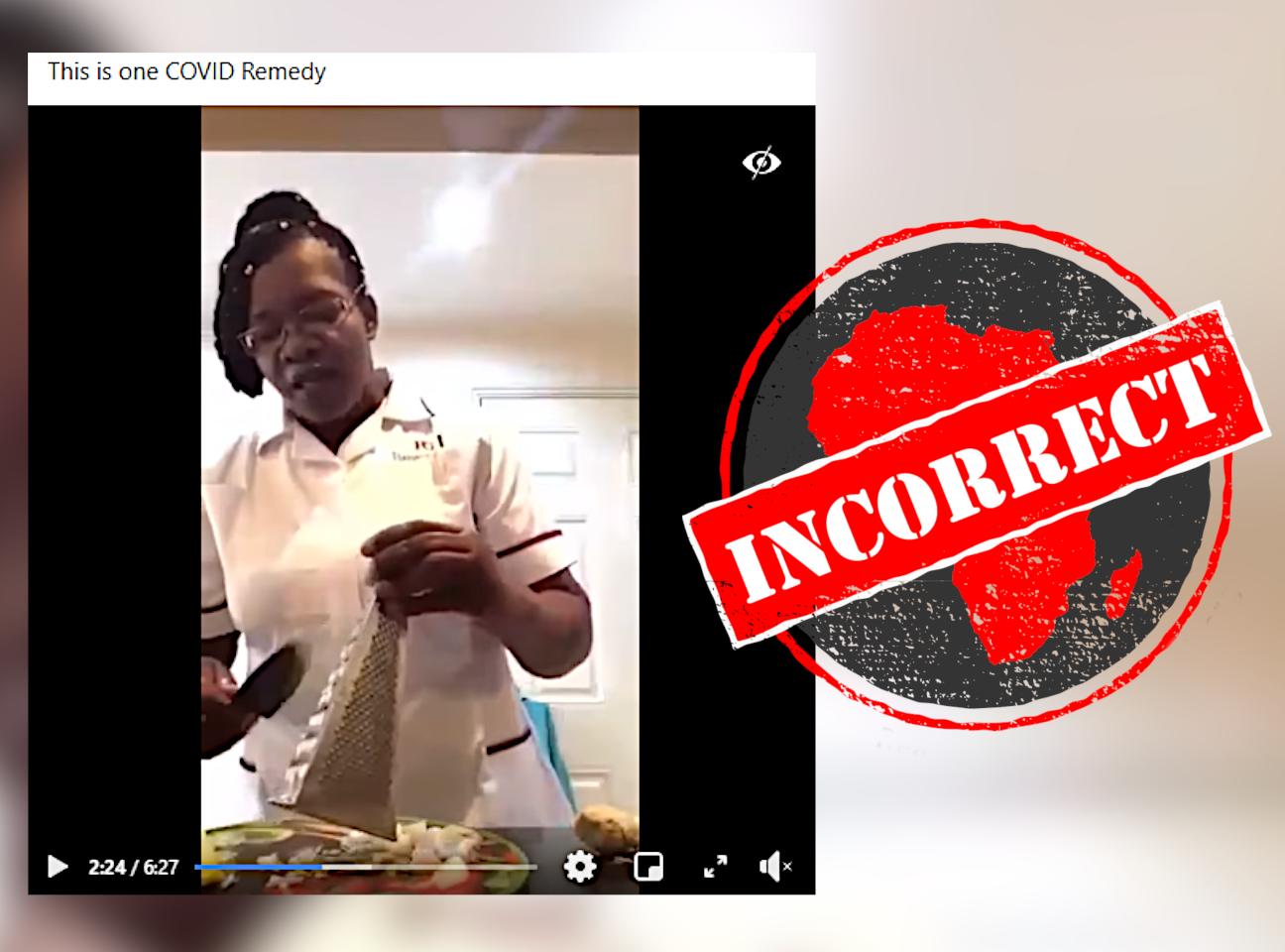A video shared over 4,200 times on Facebook claims that inhaling the steam from water boiled with onion, lemon, ginger and garlic can destroy Covid-19.
In the video, a uniformed woman introduces herself as an intensive care nurse. She advises people to make a “Covid tonic” by boiling onion, lemon, ginger and garlic. She says the resulting steam should be inhaled three times a day.
“This steam is very hot. Therefore if there is any virus in your throat or in your nostril, then this will destroy it,” she says.
Rumours that steam “destroys” SARS-CoV-1, the virus that causes Covid-19, have spread since the start of the pandemic in early 2020.
Africa Check has debunked many of these rumours. Hot steam can’t kill the coronavirus in the body – and could cause injuries.

Steam won’t reach virus in cells
A small study published January 2021 does suggest that inhaling steam at specific temperatures could reduce the number of virus particles that a person sheds. But the findings are preliminary and more research is needed.
Importantly, the study said inhaling steam would not eradicate the virus “as the steam inhalation procedure can only reach upper airways”.
Doctors and medical experts have told Africa Check that steam inhalation cannot prevent or cure Covid-19.
Alberto Escherio, professor of epidemiology and nutrition at the Harvard School of Public Health in the US, said “the virus in infected individuals is within cells and will not be reached by steam”.
Steaming can cause injuries
In December 2020, public health specialist Dr Atiya Mosam told South African newspaper the Mail & Guardian that steam might help relieve congestion but was not a cure for Covid-19.
“Some of the home treatments can help one feel better, but we really cannot confirm anything that is said to cure Covid-19 right now,” she said. “Steaming, for example, is like using hot water and that can only help open nasal blockage and pores but not cure Covid-19.”
Inhaling steam at high temperatures can also cause injuries.
Tsumoru Shintake, a professor at the Okinawa Institute of Science and Technology in Japan, previously warned Africa Check that physically attempting to expose the nasal cavity to high temperatures is dangerous and could lead to serious burns.
“Do not try [to inhale steam]. You will damage the epithelium cells in your nose,” Shintake said.
Republish our content for free
For publishers: what to do if your post is rated false
A fact-checker has rated your Facebook or Instagram post as “false”, “altered”, “partly false” or “missing context”. This could have serious consequences. What do you do?
Click on our guide for the steps you should follow.
Publishers guideAfrica Check teams up with Facebook
Africa Check is a partner in Meta's third-party fact-checking programme to help stop the spread of false information on social media.
The content we rate as “false” will be downgraded on Facebook and Instagram. This means fewer people will see it.
You can also help identify false information on Facebook. This guide explains how.





Add new comment